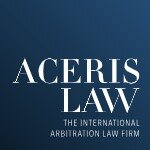Best Energy, Environment & ESG Lawyers in Geneva
Share your needs with us, get contacted by law firms.
Free. Takes 2 min.
List of the best lawyers in Geneva, Switzerland
About Energy, Environment & ESG Law in Geneva, Switzerland
Energy, Environment & ESG (Environmental, Social, and Governance) law covers a broad spectrum of issues related to sustainable development, environmental protection, energy production and usage, as well as corporate social responsibility. In Geneva, a hub for international organizations and multinational companies, these legal fields are particularly significant. Switzerland's commitments to environmental sustainability and energy transition influence both national and regional legislation, including in the Canton of Geneva. Companies, individuals, and public bodies must often navigate complex regulations concerning renewable energy, carbon emissions, pollution control, waste management, and ESG criteria in business operations.
Why You May Need a Lawyer
There are several situations where seeking legal advice from an Energy, Environment & ESG specialist in Geneva can be crucial:
- Your business is starting a project that could impact the environment or requires energy permits and compliance.
- You are facing regulatory inspections or allegations of environmental breaches by authorities.
- You need to understand or implement ESG policies within your organization to align with local or international standards.
- You are involved in real estate development and must comply with energy efficiency and environmental impact requirements.
- You are an investor requiring due diligence regarding ESG risks and environmental liabilities.
- You wish to challenge administrative decisions related to environmental or energy projects, such as authorizations or refusals.
- You are preparing reports or disclosures on environmental performance as required by law or stakeholders.
Local Laws Overview
In Geneva, Energy, Environment & ESG legal frameworks consist of both Swiss federal law and cantonal (regional) regulations. Key areas include:
- Environmental Protection: The Swiss Environmental Protection Act sets out fundamental principles for pollution prevention, land use, waste management, and protection of natural resources. Geneva has its own environmental planning laws enhancing these protections locally.
- Energy Law: Switzerland's Energy Act and the cantonal laws in Geneva foster sustainable energy usage, energy efficiency in buildings, and incentivize renewable energy adoption. Permission is required for certain energy-related constructions or operations.
- ESG Compliance: Federal legislation increasingly requires companies to report on their environmental impact, implement anti-corruption measures, and uphold social responsibility. Institutional investors and public companies may also face additional voluntary or mandatory ESG standards and disclosure requirements.
- International Standards: Geneva-based organizations often follow international frameworks such as the Paris Agreement, UN Sustainable Development Goals, and various ISO standards, which can be relevant in shaping internal policies and compliance requirements.
Legal complexities can arise when balancing economic activities, sustainable development, and societal expectations. Local authorities, including the Cantonal Office for the Environment and the Geneva Department of Territory, play key roles in oversight and enforcement.
Frequently Asked Questions
What permissions are required for new energy installations in Geneva?
Most new energy installations, such as solar panels, geothermal systems, and other renewable energies, require permits from the cantonal authorities. The application process includes environmental impact assessments and technical compliance checks.
How does Geneva regulate greenhouse gas emissions?
Geneva follows Swiss federal emissions laws, which set limits and require reporting for certain sectors and activities. There are also specific cantonal reduction targets and supporting incentives or penalties for meeting or failing to achieve these goals.
Can I challenge an environmental decision made by the government?
Yes, affected individuals or organizations can contest administrative decisions regarding environmental matters. This must be done through the appropriate legal channels and often within a specific timeframe following the decision notice.
Are companies in Geneva required to publish ESG reports?
While it is voluntary for many small businesses, larger companies and those listed on the stock exchange may be required to make non-financial disclosures, including ESG reporting, under Swiss law and applicable cantonal regulations. International standards may also apply.
What are the penalties for violating environmental laws in Geneva?
Penalties can include fines, remediation orders, suspension of operations, or, in severe cases, criminal prosecution. The severity depends on the nature and impact of the violation.
How can I check if a property complies with energy efficiency standards?
You can request energy certificates or consult cantonal registries. Lawyers can also assist with due diligence to verify compliance with local regulations during property transactions.
Who enforces environmental and energy laws in Geneva?
Enforcement is carried out jointly by Swiss federal agencies and Geneva's cantonal authorities, particularly the Office Cantonal de l'Environnement and the Department of Territory.
Do international treaties affect environmental law in Geneva?
Yes, Switzerland’s adherence to international conventions, such as the Paris Agreement, influences national and cantonal legislation. Many local regulations are aligned with these international commitments.
Is public participation possible in environmental decision-making?
Yes, Geneva provides mechanisms for public consultation and sometimes formal objections during the planning phases of major environmental or energy projects.
What is the process for obtaining legal advice on ESG matters?
You can consult a specialized lawyer or legal advisor with expertise in ESG and related domains. They can evaluate your situation, provide tailored advice, and help with compliance, reporting, and dispute resolution.
Additional Resources
When navigating Energy, Environment & ESG matters in Geneva, the following resources may be useful:
- Office Cantonal de l’Environnement (OCE): Cantonal authority for environmental regulation, permits, and enforcement.
- Service de l’Energie (ScanE): Cantonal service managing energy policy, efficiency standards, and renewables.
- Federal Office for the Environment (FOEN): Provides national guidance and documentation on environmental law.
- Association Suisse pour l’Environnement: Non-governmental organization offering information and assistance.
- Chamber of Commerce, Industry and Services of Geneva: Provides support for businesses on ESG and compliance issues.
- United Nations and International Organizations: For companies with global ties, there is guidance on best practices and international standards based in Geneva.
Next Steps
If you believe you need legal assistance regarding Energy, Environment & ESG in Geneva, consider the following steps:
- Define the issue or question clearly and gather any relevant documents or communications.
- Research and identify legal professionals or law firms in Geneva with proven expertise in Energy, Environment & ESG law.
- Contact a lawyer for an initial consultation to discuss your concerns and outline possible solutions or strategies.
- Collaborate closely, providing all necessary information and being clear about your objectives.
- Stay informed about your rights, obligations, and ongoing developments by referring to official resources and legal updates.
Specialist legal guidance ensures you remain compliant, manage risks effectively, and achieve sustainable outcomes in the complex and evolving fields of Energy, Environment & ESG.
Lawzana helps you find the best lawyers and law firms in Geneva through a curated and pre-screened list of qualified legal professionals. Our platform offers rankings and detailed profiles of attorneys and law firms, allowing you to compare based on practice areas, including Energy, Environment & ESG, experience, and client feedback.
Each profile includes a description of the firm's areas of practice, client reviews, team members and partners, year of establishment, spoken languages, office locations, contact information, social media presence, and any published articles or resources. Most firms on our platform speak English and are experienced in both local and international legal matters.
Get a quote from top-rated law firms in Geneva, Switzerland — quickly, securely, and without unnecessary hassle.
Disclaimer:
The information provided on this page is for general informational purposes only and does not constitute legal advice. While we strive to ensure the accuracy and relevance of the content, legal information may change over time, and interpretations of the law can vary. You should always consult with a qualified legal professional for advice specific to your situation.
We disclaim all liability for actions taken or not taken based on the content of this page. If you believe any information is incorrect or outdated, please contact us, and we will review and update it where appropriate.
Browse energy, environment & esg law firms by service in Geneva, Switzerland
Geneva, Switzerland Attorneys in related practice areas.
















